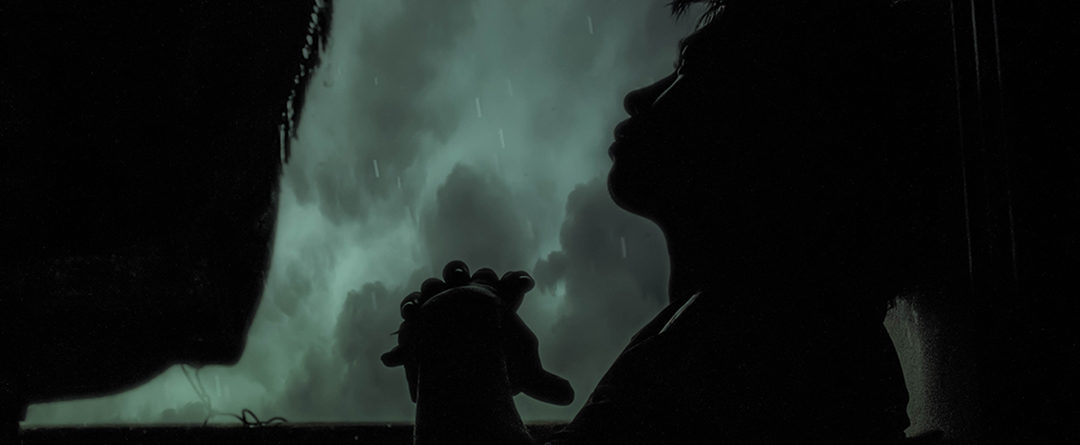by Angela Khabeb
It was the day after Thanksgiving 2005, Black Friday, the shoppers’ delight. As my friend, Michelle, and I pulled into the mall parking lot, I had a terrible, but fleeting thought: My baby hasn’t been very active today. But I quickly dismissed the idea. I swept it away, telling myself, you’re tired so the baby is probably tired, too. I was blissfully pregnant and blissfully ignorant. Our baby was stillborn seven days later.
I regret not turning to Michelle and saying out loud, “My baby hasn’t been moving.” Being the mama bear that she is, she would have insisted that I seek medical attention immediately. She would have said, “I’m taking you to the emergency room.”
Now, I’m not saying that it would have made a difference, but at least I would be able to say as a mother, I did everything I could to protect my unborn child. In the 13 years since this tragedy, I’ve rehearsed that day countless times in my mind. I kick myself that I merely dismissed my concerns out of hand. If a genie popped out of a lamp and granted me one “do-over” that would be it.
 Every year, when the air turns cooler and pumpkins appear on neighborhood porches, I know that Thanksgiving is coming. As summer gives way to autumn, lamentation pushes to the forefront of my mind. Certainly, over the years, the pain has greatly diminished. But in this grief journey, I have promised myself that when the feelings come, I will feel them. If tears come, I cry them. I resist the urge to wall off or ignore unpleasant feelings.
Every year, when the air turns cooler and pumpkins appear on neighborhood porches, I know that Thanksgiving is coming. As summer gives way to autumn, lamentation pushes to the forefront of my mind. Certainly, over the years, the pain has greatly diminished. But in this grief journey, I have promised myself that when the feelings come, I will feel them. If tears come, I cry them. I resist the urge to wall off or ignore unpleasant feelings.
This is countercultural to some degree, given that our society often touts a “No Regrets” approach to life. Pop culture notwithstanding, one thing I’ve learned is when we bury our feelings, we bury them alive. Paradoxically enough, the more we choose to deal with them, ultimately the less we will have to deal with them.
Years ago, I heard a therapist say that we should never wallow in regret, but every once in a while, it’s okay to take off our shoes and swish our toes around in it. Although she was being facetious, I think she’s on to something. Even though it can be a messy process, recognizing my own regret has helped alleviate some of the pain of the tragedy. Ultimately acknowledging that regret has led me to deeper compassion and fuller understanding, making me a better wife, mother, and pastor. Being honest with myself has helped me live into healthy grace-filled relationships with others.
Some people treat the very word regret with fear or disdain. But regret is universal. It is simply a part of the human condition. I wonder if Jesus, our fully human and fully divine savior, experienced a pang of regret when he witnessed Mary’s and Martha’s heartbreak at the death of their brother, Lazarus. What did Jesus feel when Martha met him weeping and screaming, “Lord, if you had been here, my brother wouldn’t have died.”? Likewise, what did Jesus feel when Mary fell to his feet echoing her sister’s lament, “Lord, if you had been here, my brother wouldn’t have died.” Did their sorrow pierce his heart, causing him to weep openly and bitterly? Jesus traveled to Bethany with the expressed purpose of raising Lazarus. Yet John’s Gospel tells us that Jesus was “deeply moved in spirit and troubled . . . and Jesus wept” (John 11:33-35). Even in the light of certain resurrection, regret is near.
What did our Savior feel as he prayed in the Garden of Gethsemane? Did he regret bringing Peter, James and John with him? He urged them to pray, telling them, “My soul is overwhelmed with sorrow to the point of death. Stay here and keep watch with me” (Matthew 26:38). But instead of praying, they fall asleep.
Jesus, our Savior, fell with his face to the ground and repeatedly pleaded with God, “take this cup from me.” Luke’s Gospel teaches us that when Jesus prayed this prayer he was “in anguish” (Luke 22:44). Here we encounter Jesus in a situation where his humanity is undeniable. I can feel his regret even though he knows that beyond the cross is resurrection. Good Friday’s pain momentarily eclipses Easter’s joy. But thanks be to God, this is not the end of our story.
Jesus knows — personally and intimately — the depth of great suffering . This means that Jesus knows the pain we carry and Jesus invites us to trade our sorrows for his joy. Our regret, hurt and disappointments are sources of wisdom and insight on our faith journeys. In that sense, we can count them as gifts. Thankfully, there is nothing in our past, present or future — positive or negative — that can separate us from the love of God. There is absolutely nothing in the world that is stronger than God’s grace. Thanks be to God!
 The Rev. Angela T. Khabeb serves Holy Trinity Lutheran Church in Minneapolis.. She enjoys an active home life with her amazing husband, Benhi, and their three wonderful children Konami, Khenna, and Khonni.
The Rev. Angela T. Khabeb serves Holy Trinity Lutheran Church in Minneapolis.. She enjoys an active home life with her amazing husband, Benhi, and their three wonderful children Konami, Khenna, and Khonni.

